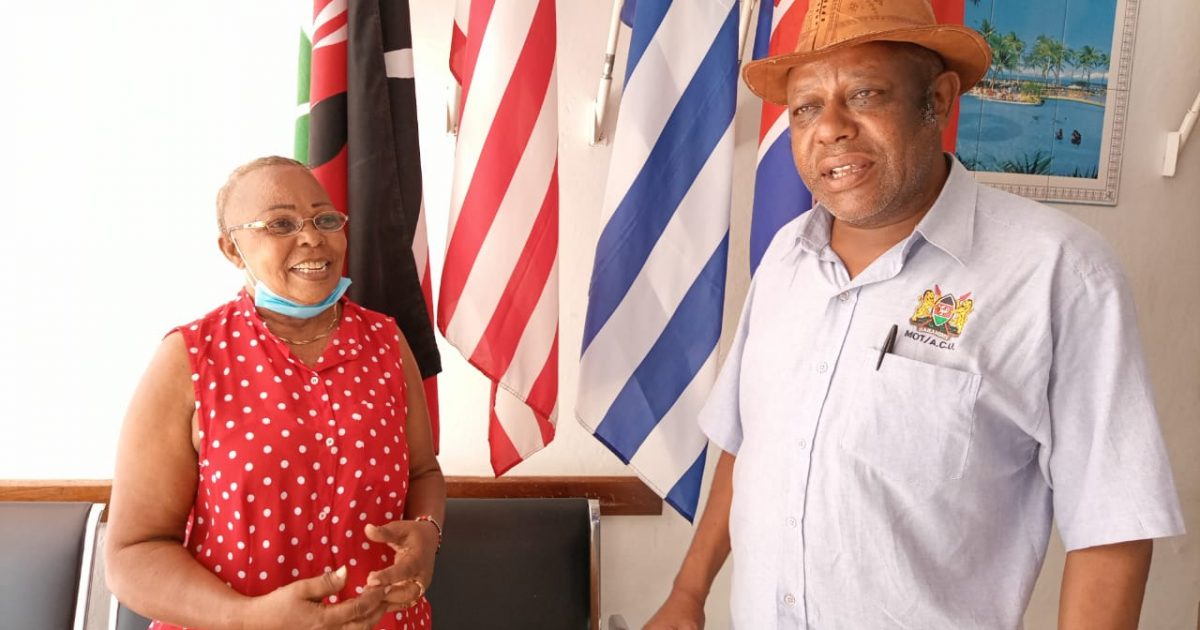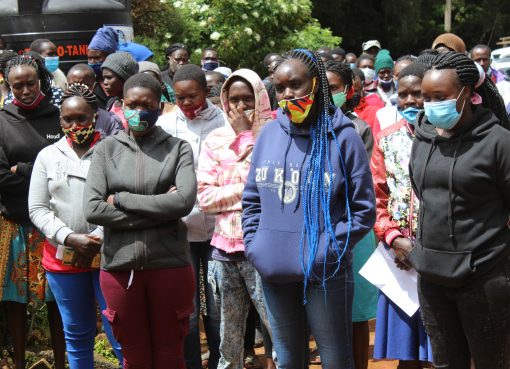The novel coronavirus (Covid-19) pandemic has brought nothing but bad news for the hotel industry.
With business and holiday travel virtually grinding to a halt, most hotels in the country had to contend with drastic drop in bed occupancy.
In the coastal city of Mombasa, many businesses especially hotels first responded to the pandemic by completely shutting their doors.
Some of the shut hotels are running with a skeleton workforce to ensure the integrity of their buildings.
Many tourist establishments in the seaside city have closed indefinitely as a result of the covid-19 outbreak leading to many employees finding themselves without work.
Veteran Mombasa hotelier Janet Mirobi said covid-19 impact on the hospitality industry is ‘mind boggling’ as businesspeople were left sailing deep into uncharted waters.
Mirobi popularly known as ‘Mama Jawambe’ is the owner and proprietor of Jawambe Hotel along Bunyala road in Ganjoni area of Mombasa.
Mirobi, a former taxi driver, started her journey into hotel business in 1996 occasionally giving a ride to holidaymakers staying at tourist hotels dotting the beaches.
In an interview with KNA on Saturday in Mombasa, Mirobi said she was forced to lay off staff as a result of the harsh economic environment occasioned by the pandemic that has upset life across the globe.
She said during the height of the pandemic, she was the ‘only person’ remaining to manage her 40 rooms’ establishment after sending all her 29 hotel employees home.
“It was disheartening to see my loyal staff go home with nothing due to the poor business environment brought about by the viral disease,” she said during the interview conducted at her business premises popular with civil servants and corporate clients.
Mirobi said the situation forced her to sell her personal car so as to pay her staff with the proceeds and survive the covid-19 crisis.
“It was difficult for me to let go of my staff of many years with little or no severity pay and so had to sell my car to pay them,” she said adding that it was a case of survival for the fittest.
The hotelier said at times between March and May during the height of the pandemic, she would have one or two clients at the facility.
“Bed occupancy had dropped from all time high of 90 percent to less than two percent and I don’t think we would see regular occupancy rates in the near future.” she said.
However, Mirobi says as the coronavirus gradually eases. hotels are at the stage where they’re once again trying to attract paying guests.
She said she has currently recalled 12 of her employees as clients start trickling back as Kenyans hoped the pandemic may be over sooner than anticipated.
The hotelier disclosed she recently embarked on refurbishment and renovations on guest rooms as she anticipates business to slowly pick up.
Mirobi said she has put the necessary measures including training of the staff to ensure total adherence of the Covid-19 protocols as outlined by the Ministry of Health.
She calls on the government to help the hospitality industry overcome the difficulties that coronavirus brings noting the tour, travel and hospitality industry can manage to register immense growth with government support.
Mirobi said President Uhuru Kenyatta’s economic stimulus programme has gone a long way in keeping the country afloat as the coronavirus pandemic ravaged life and economics globally.
In the government’s economic stimulus programme, a total of Sh2 billion was set aside to support renovation of facilities and the restructuring of business operations by actors in the tourism industry.
Mirobi contends it is imperative for the banks to extend loan repayment period to give business people time to recover from the difficulties brought about by the pandemic.
In April this year, the Central Bank of Kenya (CBK) issued guidelines that compelled lenders to re-negotiate loan repayment terms with borrowers, including payment holidays and penalty waivers.
By Hussein Abdullahi





